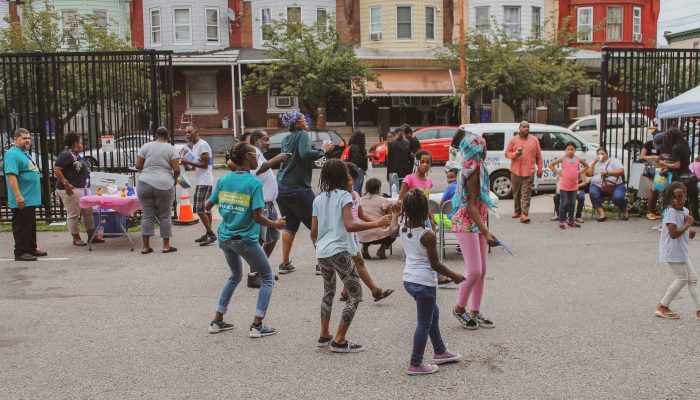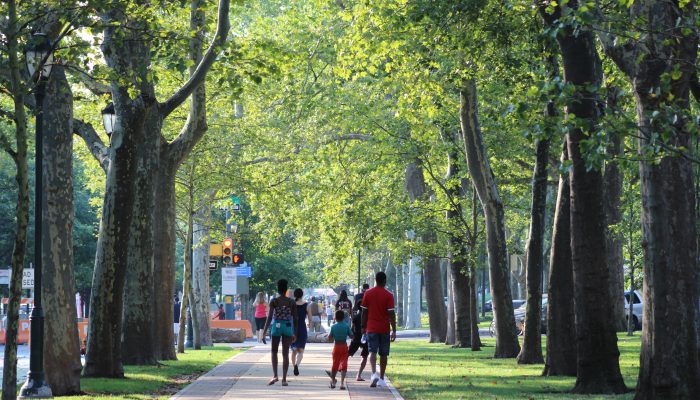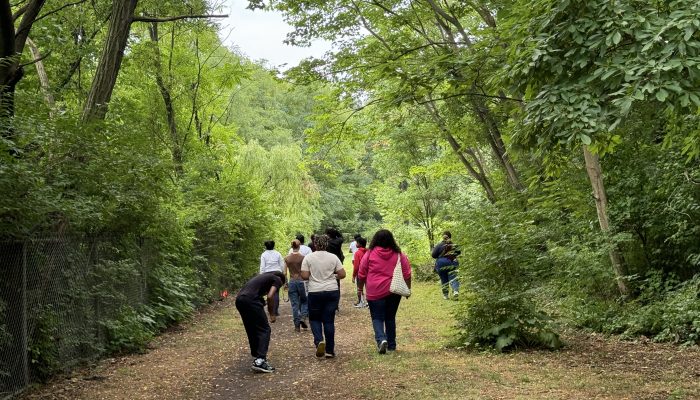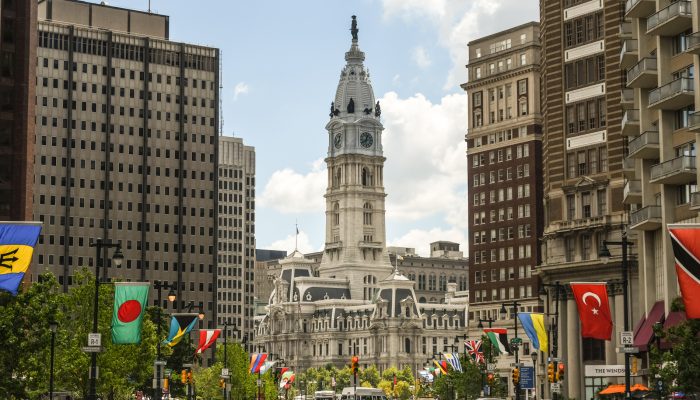#BeatTheHeatHP
On June 25, The Office of Sustainability and our partners from the Department of Public Health, Parks and Recreation, Philadelphia Water Department, and Office of Emergency Management kicked off the Beat the Heat pilot project in Hunting Park. This work is being done in collaboration with Esperanza CDC, The Lenfest Center, Hunting Park NAC, Hunting Park United, and North 10 CDC. The project is aimed at addressing the disparity in how heat is experienced in Philadelphia
Philadelphia, like other cities around the world, is getting hotter and wetter due to the impacts of global climate change. Since 2010, we’ve experienced more days over 90 degrees. This year, Philly experienced seven days over 90 degrees within the first two weeks of summer. Four of those days were declared Heat Health Emergencies. Hotter temperatures and longer stretches of hot days impact public health and safety causing dehydration, heat related illnesses, and even fatalities. Cities are especially vulnerable because of the urban heat island effect.
We know that every neighborhood in Philadelphia will not be impacted in the same way. Due to differences in historical policies and trends, the built environment, and neighborhood demographics like income and health; some neighborhoods are more vulnerable than others. Average surface temperature data collected by a researcher on behalf of the Office of Sustainability shows that currently, some neighborhoods in Philadelphia can be as much as 22 degrees hotter than others. Low-income and communities of color tend to be concentrated in these hotter areas. As our climate projections show even hotter days to come, that inequity could continue to grow.
So, what factors influence heat vulnerability? Philadelphia’s built environment plays a large role in how hot a neighborhood can get. Some neighborhoods have more exposed asphalt, less reflective building surfaces, and an older housing stock. The distribution of trees, green space, and permeable surfaces are important because they provide shade and help bring surface temperatures down. Low income and communities are color are among those most impacted. Historical policies and trends like redlining and other exclusionary zoning practices, as well as chronic disinvestment in communities of color over many decades, has contributed to this inequity.
The Beat the Heat pilot project aims to understand how residents in Hunting Park are currently coping with extreme heat: the tools they need to better cope and what changes they would like to see in their community to make it cooler in the long run. Working with neighborhood partners, we are collecting surveys, attending events, giving out cool items like hand fans and water bottles, and learning more about how the neighborhood experiences heat. We hope that lessons learned in Hunting Park can help other communities in Philadelphia become more resilient to our warming climate.




